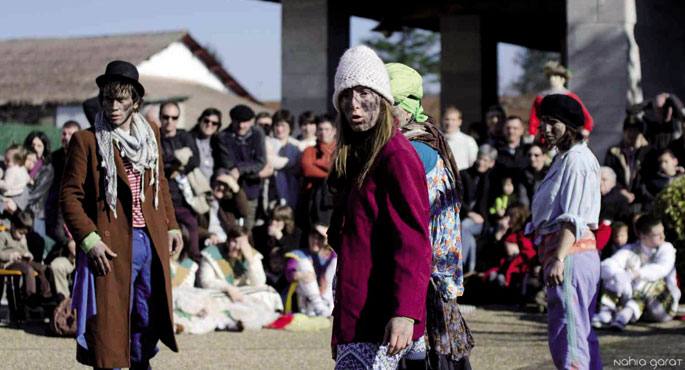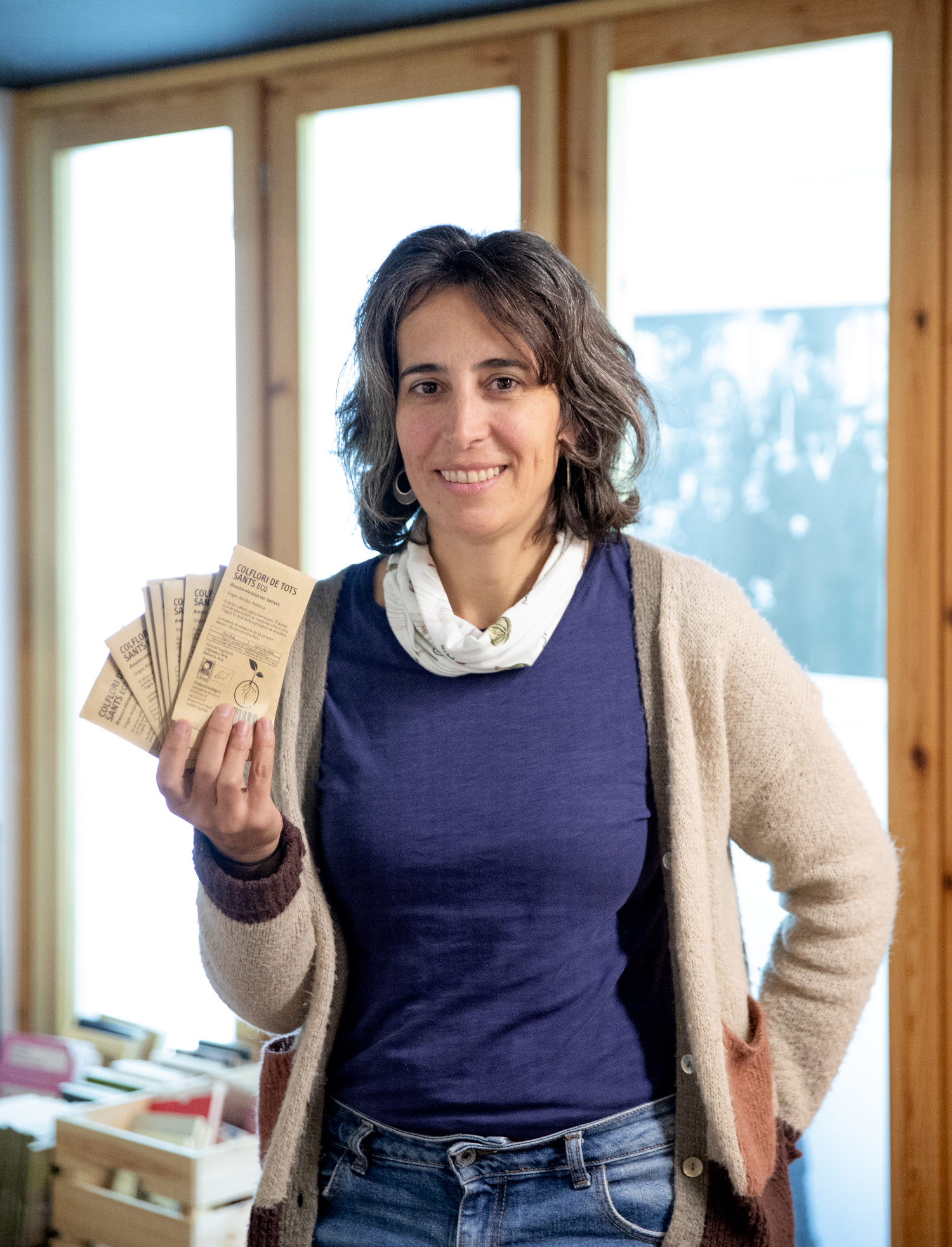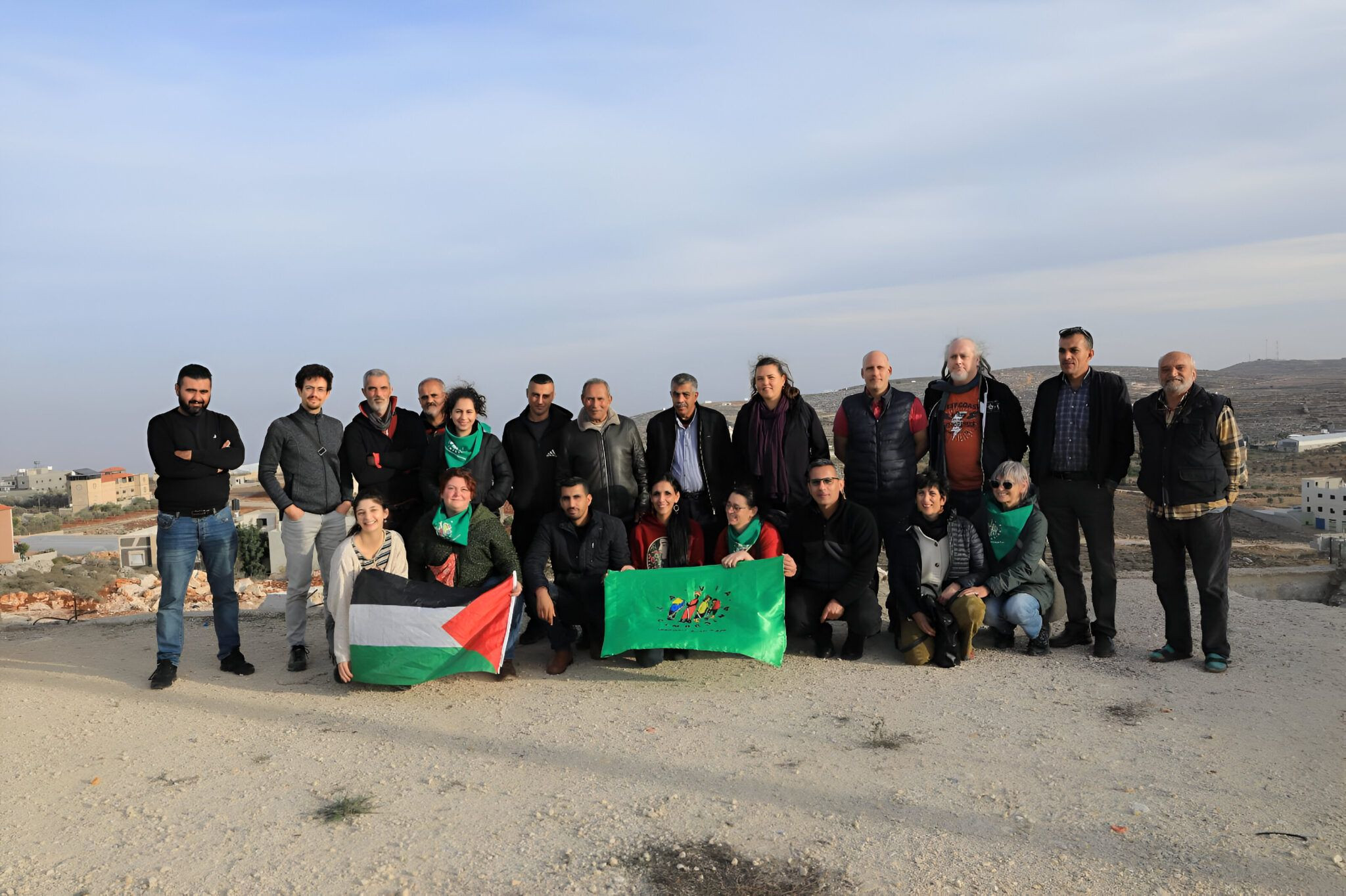Intensive course of neoliberalism in Amikuze
- Many jokes have been made at the expense of lasagna and other industrial foods that were carried horse meat in the idea of beef. Amikuze de la Baja Navarra is in the midst of the scandal: counterfeit meat has been marketed by a subsidiary of the cooperative Lur Berri, and the largest of both is Berthelemy Agerre, who is also mayor and general advisor.

Anyone who has known the life and ideas of Jean Pitrau, who was offered a Larrun a year ago, will find in the Lur Berri cooperative of 2013 and in the businessman and politician Berthelemy Agerre the reverse of man and the intentions that revolutionized Iparralde's agriculture.
But to do so, the reader will have to link the lasagna scandals and other foods bearing beef in the form of cattle with Amikuze, Spanghero and Lur Berri, Findus and his supplier, Berthelemy Agerre. It is not easy to realize that one of the most notable examples of globalization is at home, in the offices of Aiziritz de Donapaleu, much less when we live drowned by the agendas of the Spanish mainstream media.
Let us summarize what journalists have christened Horsegate and Chevalgate. Horse meat has been found in an investigation into industrial foods of the brand Findus, which should have horse meat. The tracks of false meat lead the inspectors to the company Comigel, a subsidiary of Findus, of which Tavola is a supplier in Luxembourg, and they have come to Spanghero further behind.
Spanghero is a subsidiary of the cooperative Lur Berri which has its offices in Castelnaudary, together with Toulouse (Occitania); Spanghero is the President of Lur Berri, Barthelemy Agerre, Mayor of Lüküze and General Advisor to the Atlantic Pyrenees, heir of Jean-Jacques Laserre.
This issue has enough intimate details to make a book. A bad example is that Draap Trading Ltd., which marketed 42 tons of conflicting horses, is based in Cyprus and is led by the Dutch Jan Fasen. Fasen was sentenced a year ago by the court in Breda (Netherlands) to 9 months in prison for selling in the trap a horse he had brought from South America... as halal meat demanded by Muslims.
If those responsible for Spanghero started to claim that they had been misled, the researchers have shown that they were aware of what happened, proof of which were the invoices found in the offices. As the weeks go by, the falsification of the 42 tonnes has revealed some dark aspects of the agro-industrial industry.
Much has been said about food labelling and traceability. The hypocrisy of food control was denounced in a joint appearance of several cooperative farmers in the portal of the offices of Aiziritz of Lur Berri along with ELB militants: the farmer is asked strict permissions to bring a cattle in the truck, that the animal he has in the grass is exactly identified... but then loses control since his labeled food enters the net. It has been built on the lack of control of the big ones, that is, a global market without borders.
Lur Berri, from Amikuze, wanted to gain a foothold in the global network of the agricultural industry. Founded in 1971, and continuing with cooperatives dedicated to the management of wheat and maize, since the 1980s it has steadily increased, to reach 211 million capital and the sales of 1,130 million euros it currently owns, among the sectors of land, food and distribution.
Lur Berri creates remarkable
The cooperatives and trade unionists who met in Aiziritz denounced: “Growing, buying companies, getting into companies… Lur Berri’s strategy in recent decades is to grow as a leading player in the global market until he ends up burning wings.”
The OECD says it has forgotten the local population and farmers with all the benefits of these years to make new purchases. It has rejected the promotion of local products, it has helped close the slaughterhouse in Donapaleu, it has denied farmers to produce the guaranteed maize they need the products of the Ossau-Iraty origin mark...
The strategy has also attracted over 300 workers from the corporation and cooperatives. The CFDT trade union explained that salaries for half of the workers are below EUR 1,300 net per month, including seniority. Former trade unionist Sauveur Bacho has publicly denounced the company’s methods, which also taught him “where the door is to leave”.
CFDT and 194 workers have long been questioning Lur Berri because they are owed the share of their profits between 1993 and 2000, with a total of more than EUR 1.8 million. It was a coincidence that the court of the Cour de Cassation in Paris decided to reopen the case of the workers by blowing the Spanghero sycamus.
At the very heart of the whole thing, a name: Berthelemy Agerre. Founded in 1955 in Lüküze-Altzümarta, he became mayor at the age of 21. That is still the case today. Young mayor and vice-president of the cooperative Lur Berri since 1980. The representative of the General Council of the Atlantic Pyrenees took the place of the well-known Jean-Jacques Laserre, who has also been President of New Earth for a long time.
In the last elections to the French Parliament in 2012, Jean Lasalle was presented as number two of the Biarnesa in the lists of the centrist party Modem. Following the follow-up to Ager in that campaign, journalist Elsa Fayner published an interesting report on Rue 89, belonging to the group of Le Nouvel Observateur.
Fayner Lassalle, attendant of the ruralité. Au menu, viande avariée ou importée (“Lasalle, candidate for the rural world. In the menu, the rotten or imported meat”) counterweight Lassalle, son of the pastor of the Aspe valley and businessman of agrobussins, Agerre. Under this mandate he has joined multinationals such as Lur Berri Pioneer, which has spread to agriculture and food or DIY.
Ager has at its command 1,600 workers, most of them foreign to Amikuze, in which he has been elected. But used to looking away, he owned over a dozen years of extensive land in Argentina. Sold by them, the family, to which two young children are attributed, has bought fields in Morocco, where the cane or beet work.
Following the latest scandal, Guillaume Gendron published it in Libération: Barthélemy Aguerre, l’appétit sans limite du patron de Spanghero. The trade unionist Sauveur Bacho of Libération spoke of the strength of the notary of Iparralde: “Since there is not much employment in this region, it can be said that he is the head of politics and the rural world.”

























